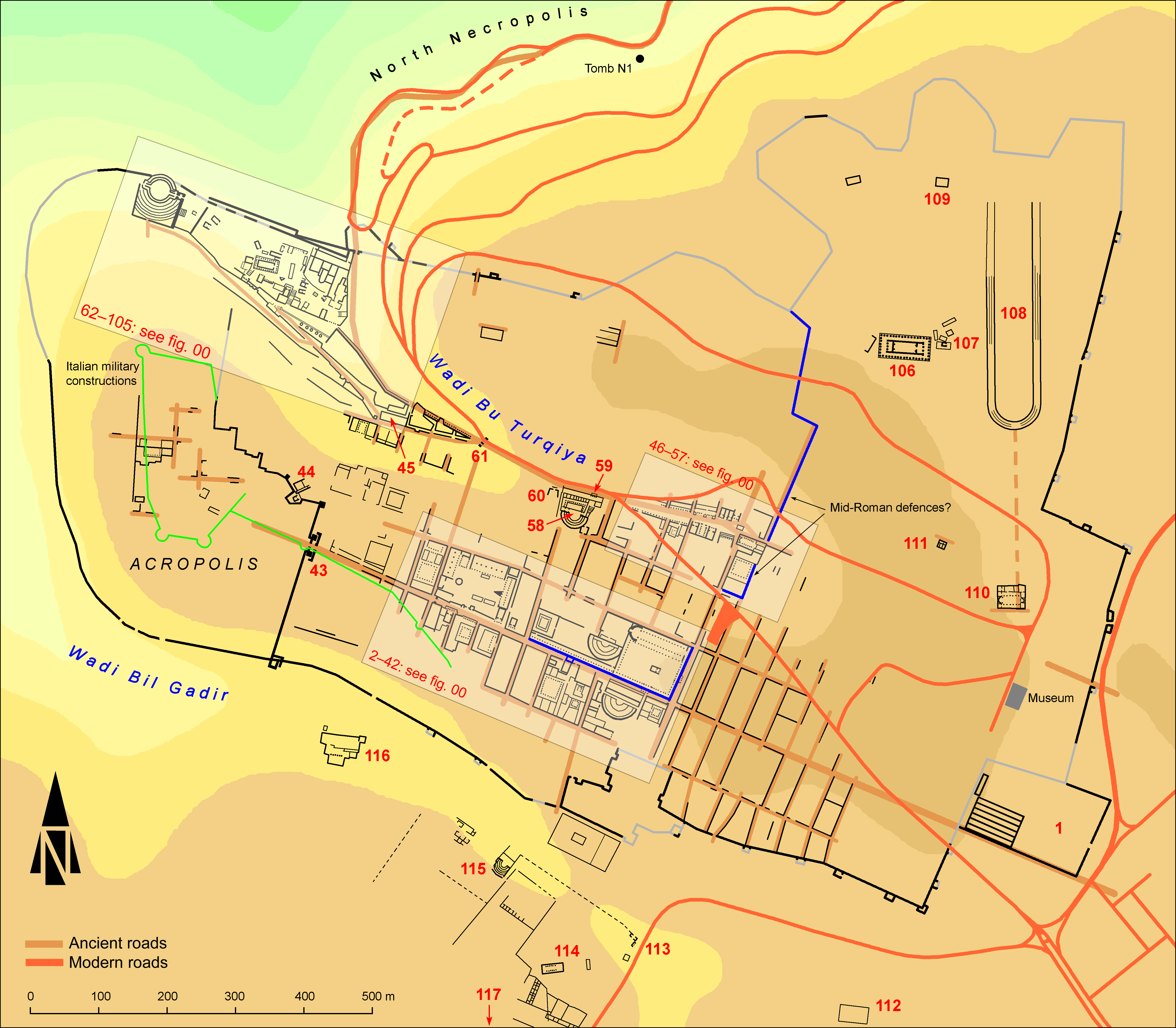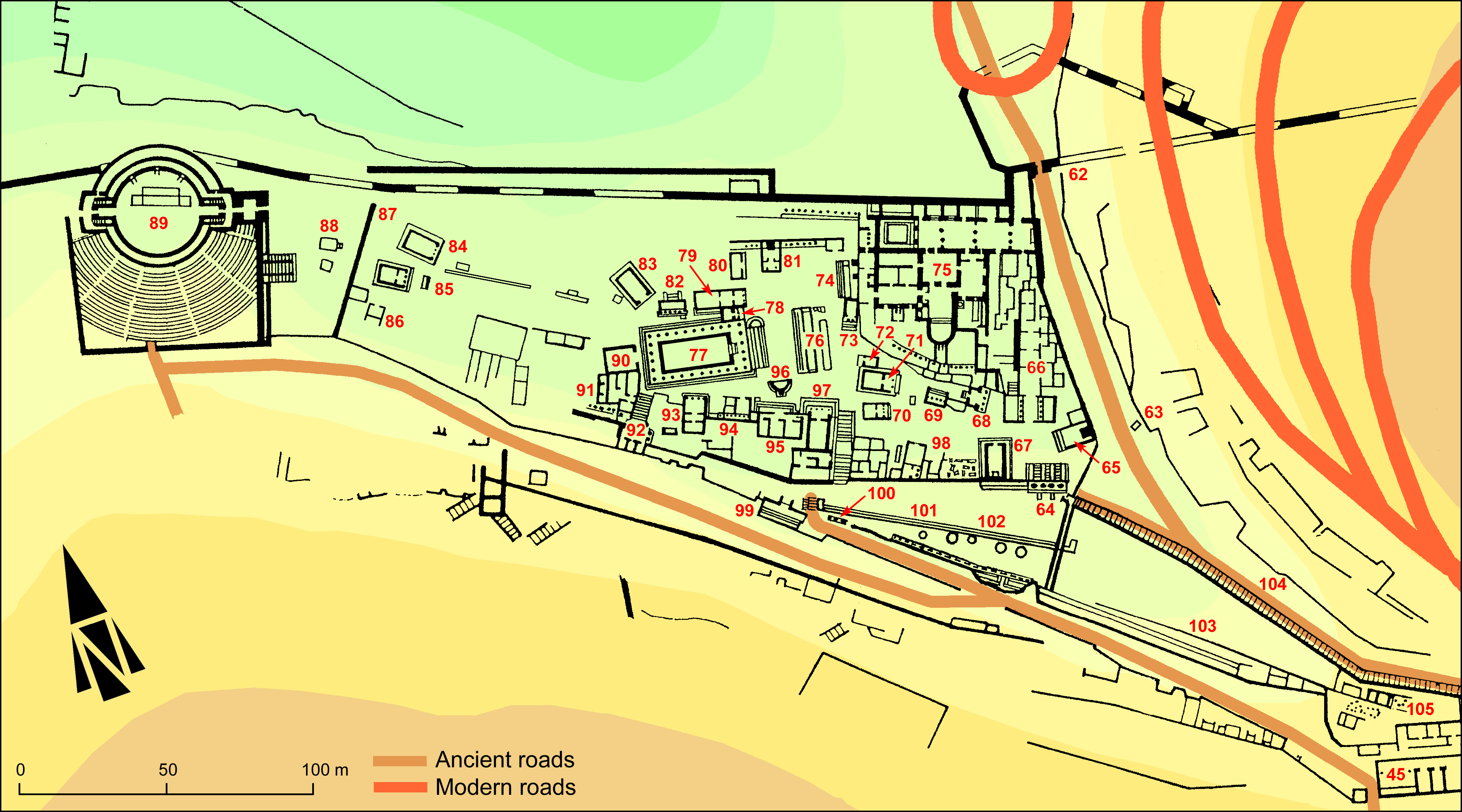Support: Three adjoining fragments of an inscribed limestone column drum
(dimensions unknown).
Layout: Inscribed on the surface probably in 10 lines, with missing parts at right and left;
an alternate inset of the pentameters is probable.
Letters: Height unknown; deeply and carefully cut, letters with small serifs, resembling that of GVCyr0362: dropped bar alpha, lunate epsilon and sigma, kappa with very long and slightly curved bars, pi with equal hastae, phi with
tall hasta, cursive omega.
Date: Second to third century AD (lettering).
Findspot: Found in 1925 at Cyrene ➚:
in the Temple of Apollo: plausibly from the Peristasis
of the second century AD temple.
Place of origin: Findspot.
Last recorded location:
Known only from an ancient photograph.
Text constituted from: Transcription from photograph (JMR and CDL).
French translation
Le glorieux rejeton de [---]nos, le gracieux [fils qu'engendra]
le prêtre Markianos, étoile parmi la jeunesse contemporaine,
dont tous disaient qu'il avait une voix magnifique,
obtint pour son intelligence un lot en harmonie avec son habileté ;
lorsque la cité des Cyrénéens apprit qu'il revenait
grâce à sa voix florissante en chef [de choeur?] de la Grèce,
pour son père qui faisait le voeu d'appeler bienheureux [---]
la [---] de la maison de ses frères prêtres
[---] ses enfants se réjouissant de leurs couronnes
[--- c'est tout ce que] j'ai dit et puisse [Apollon] le réaliser !
English translation
The glorious offspring of [---]nos, the gracious [son whom] priest Markianos
[begot], star amongst those of the same age,
whom everybody said that he had a wonderful voice,
obtained for his mind a lot concording with his skills;
when the city of the Cyrenaeans knew that he was coming back
thanks to his flourishing voice as the head of [choirs?] in Greece,
for his father who vowed to call mostly happy [---],
the [---] of his brothers priests' house
[---] the children being delighted with their crowns
[--- that is all] I said and may [Apollo] achieve it!
Italian translation
Il glorioso rampollo di [---]nos, lo splendido [figlio che] il sacerdote Markianos
[generò], stella tra i coetanei,
che tutti dicevano avesse una voce meravigliosa,
ottenne per la sua intelligenza una sorte in armonia con le sue abilità;
quando la città dei Cirenei seppe che stava tornando,
grazie alla sua voce fiorente, come capo dei [cori?] della Grecia,
per suo padre che aveva fatto voto di chiamare beato [---],
la [---] della casa dei suoi fratelli sacerdoti
[---] i figli deliziati delle loro corone
[--- è tutto quanto] ho detto e possa [Apollo] realizzarlo!


